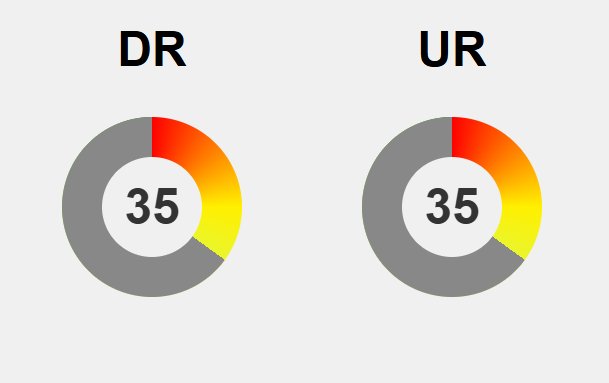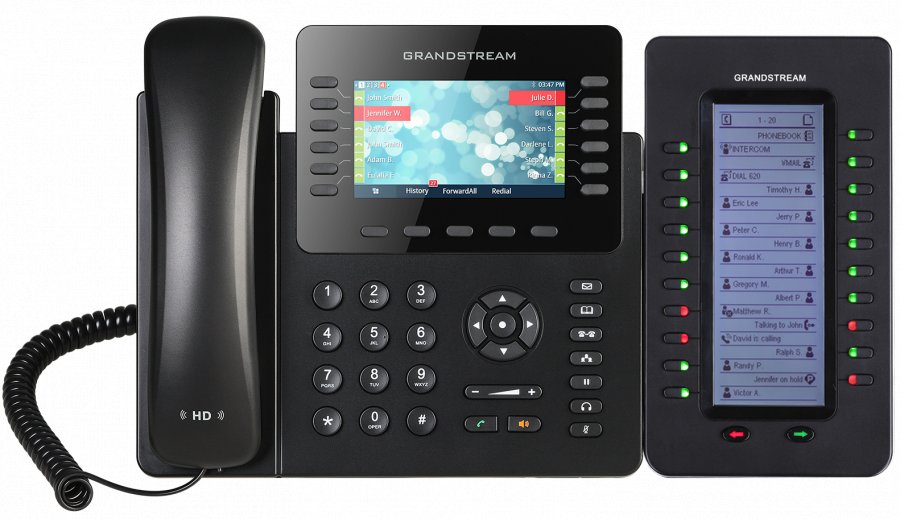Choosing the right business accountant is more than a routine task—it’s a strategic decision that can dramatically influence your company’s financial future. Are you overlooking critical factors that could make or break your success? In today’s complex economy, a trusted advisor who understands your industry, communicates clearly, and aligns with your goals can help you navigate cash flow management, compliance, and growth opportunities. Many entrepreneurs focus solely on cost, yet investing in experienced, credentialed professionals often yields greater savings and smarter financial strategies over time. This partnership impacts daily operations, enabling efficient bookkeeping, real-time insights, and proactive planning that reduce errors and foster resilience. But how do you evaluate the true value beyond fees? The key lies in understanding your specific needs, building transparent relationships, and addressing potential challenges early. Ultimately, the right accountant isn’t just a service provider—it’s a pivotal partner shaping your business’s long-term success.
Partnering for Success: Why Choosing the Right Business Accountant Matters
Choosing the right business accountant isn’t just about handling taxes—it’s about finding a partner who truly understands your financial needs. In today’s fast-paced economy, your accountant can be a key ally in guiding your business toward stability and growth. They do more than balance the books; they help you make smarter decisions, manage cash flow, and stay compliant with ever-changing regulations. A good accountant becomes a trusted advisor, supporting everything from daily operations to long-term strategies.
Many entrepreneurs overlook how vital this relationship is. They might focus solely on price or credentials, but the real value lies in finding someone who understands your industry, communicates clearly, and shares your goals. The right accountant acts as a proactive supporter, helping you navigate challenges and uncover opportunities before they become problems. This partnership can be the foundation of your business’s future success.
As your business expands, so do your financial needs. Whether you’re just starting out or entering new markets, having a dedicated financial partner makes a difference. They assist with bookkeeping, tax planning, and forecasting—tools essential for staying ahead. Choosing someone with the right expertise and approach ensures you’re not just reacting to issues but actively shaping your financial future.
This decision is strategic, not just operational. Your accountant should be a reliable resource, offering insights that help optimize cash flow, minimize taxes, and seize growth opportunities. Building this relationship based on trust and shared understanding sets the stage for long-term success. Finding the right fit now can lead to a more resilient and prosperous business tomorrow.
Know Your Financial Landscape: Foundations for Selecting the Perfect Accountant
Understanding your financial needs is the first step toward finding the right business accountant. Knowing where your business currently stands financially helps clarify what support you truly require. Are you managing cash flow effectively? Do you understand your tax obligations and deadlines? Pinpointing these areas allows you to focus your search on professionals who specialize in those aspects, whether it’s bookkeeping, tax planning, or financial forecasting.
Getting familiar with basic accounting concepts makes the process smoother. Understanding how sales, expenses, and investments are recorded provides insight into your business’s health. Your financial statements—like balance sheets and income statements—reflect your company’s true position. Recognizing your tax liabilities and available deductions helps you stay compliant without last-minute surprises. This knowledge streamlines collaboration and makes your interactions with an accountant more productive.
Technology plays a major role in modern finance. Cloud-based tools make real-time data accessible, enabling faster decision-making. But staying aware of evolving standards and regional reporting requirements is crucial. Your accountant should be well-versed in these updates to keep your business compliant and avoid costly errors. Knowing what tools and standards matter ensures your financial records are accurate and trustworthy.
Understanding the different roles within financial support—bookkeepers, accountants, CPAs—helps you identify who you need and when. Bookkeepers handle daily transactions; accountants analyze data and prepare reports; CPAs bring advanced expertise in taxes and strategic planning. Matching your specific needs to the right professional prevents overspending on unnecessary services and ensures you’re covered at every stage.
Industry-specific knowledge is another vital factor. Retail, tech startups, or service providers face unique financial challenges and opportunities. An accountant experienced in your sector can offer tailored advice, identify sector-specific credits, and help you navigate industry regulations. This specialized insight can significantly improve your financial management and decision-making.
Finally, staying updated on standards like GAAP or IFRS is essential. Tax laws and reporting rules change regularly, and your accountant should keep you informed. This ongoing oversight helps you avoid penalties and prepares you for audits. With a clear understanding of your financial landscape, you’ll be better equipped to choose an accountant who truly meets your needs and supports your growth.
Top Factors to Consider When Choosing Your Business Accounting Partner
When choosing a business accountant, credentials and certifications are your first indicators of quality. A CPA or CMA signals they’ve met rigorous standards and adhere to high ethical benchmarks, giving you confidence in handling complex financial matters. However, qualifications alone aren’t enough; experience in your specific industry makes a significant difference. An accountant familiar with your sector understands its unique challenges and regulations, providing tailored advice that generic professionals might overlook.
Communication style is equally crucial. Your accountant should be responsive, clear, and able to explain complex concepts in straightforward language. If they use jargon excessively or delay responses, it can lead to misunderstandings or frustration. A good professional listens to your goals and concerns, translating financial data into actionable insights to support your decision-making process.
Cost is an important factor, but value matters more than just the lowest fee. An experienced accountant who charges a bit more often delivers smarter tax strategies and more reliable financial guidance. Conversely, choosing someone solely based on price risks errors or missed opportunities, which could cost you far more in the long run. Transparent fee structures and clear scope of work help you assess whether their services align with your budget.
Reputation provides further reassurance. Ask for references or case studies from clients with similar needs. An accountant with a proven track record of delivering results is more likely to act proactively and offer valuable insights that support your growth. Remember, investing in the right professional is a strategic move that can save money and reduce risk over time.
Ongoing support is essential. Your ideal accountant should be accessible for regular check-ins and updates, staying engaged as your business evolves. Their ability to adapt and provide timely advice ensures your financial strategies remain aligned with your goals. Building a relationship based on transparency, shared values, and responsiveness creates a partnership that can truly propel your business forward.
To find an accountant who truly understands your needs, consider exploring specialized resources or directories that highlight professionals with relevant industry experience. For more detailed guidance, you might want to review this comprehensive resource on choosing the right business accounting partner: Choosing the Right Business Accounting Partner.
Balancing Costs and Quality: A Strategic Approach to Hiring an Accountant
Balancing cost and quality when choosing a business accountant requires careful thought. It’s tempting to seek out the lowest fee, but sacrificing experience or expertise for savings can lead to costly mistakes down the line. Instead, aim for a partner who offers a fair price for reliable, high-quality support. The goal is to find someone who balances affordability with the value they bring to your business.
Most accountants price their services in different ways—hourly rates, monthly retainers, or project-based fees. Understanding what’s included in their charges is key. Hourly billing can become unpredictable, making it difficult to plan your budget, while flat fees provide clarity but might include services you don’t need. Carefully review their offerings to ensure you’re paying for what truly matters to your business.
Investing in a more experienced professional might seem costlier initially, but the long-term savings often outweigh the upfront expense. A seasoned accountant can uncover tax deductions you might miss, optimize your financial strategies, and help you avoid penalties. These benefits can significantly improve your cash flow and profitability over time.
If your budget is tight, look for ways to maximize value without sacrificing quality. Smaller firms or newer accountants may offer competitive rates while still providing expert advice. Using online tools for routine bookkeeping and outsourcing basic tasks can free up resources for strategic support from your accountant.
Remember, it’s not just about finding the cheapest option but about securing a partner who genuinely supports your growth. A smart investment in quality accounting helps you prevent errors, seize opportunities, and build a solid financial foundation. In the end, paying a bit more for expertise often pays off by saving you time, stress, and money in the long run.
How a Skilled Accountant Enhances Your Daily Operations and Strategic Growth
A good accountant does more than just handle tax filings; they have a direct impact on how smoothly your daily operations run. When your financial processes are managed efficiently, you spend less time correcting errors or dealing with compliance issues, freeing you up to focus on core business activities like serving customers or developing new products. Accurate and timely bookkeeping creates a stable foundation that supports sound decision-making at every level.
Beyond routine record-keeping, a skilled accountant provides real-time insights that empower you to make smarter choices. Whether adjusting pricing strategies, controlling expenses, or planning investments, having access to clear, up-to-date financial data allows you to respond quickly to market shifts. This proactive approach transforms financial management from a reactive task into a strategic advantage.
A trusted accountant also plays a key role in maintaining healthy cash flow. They can spot potential shortages early, helping you avoid liquidity crises that might stall your operations. By setting realistic budgets and monitoring performance regularly, they help keep your business financially stable and positioned for growth.
Their expertise extends to strategic decisions, such as expanding into new markets or launching new products. An experienced accountant evaluates risks and benefits, translating complex data into actionable plans. Their advice ensures you’re making informed moves that align with your long-term vision, reducing guesswork and uncertainty.
Moreover, a dedicated accountant keeps you compliant amid constantly changing tax laws and regulations. This ongoing oversight minimizes the risk of penalties and audits, allowing you to focus on growth without compliance worries. Their support ensures your financial records accurately reflect your business’s true position, streamlining operations and enhancing trust with stakeholders.
In essence, a capable accountant acts as the backbone of your business’s financial health. Their support not only prevents costly mistakes but actively enables smarter decisions, greater efficiency, and sustainable growth. Having this partnership means your business isn’t just surviving—it’s building resilience and readiness for future opportunities.
Seamless Onboarding: How to Effectively Integrate Your New Accountant
Once you’ve selected your ideal accountant, a smooth onboarding process sets the stage for a strong working relationship. Start by clearly sharing your business goals, financial priorities, and any specific challenges you face. Providing all relevant documents—such as recent financial statements, tax returns, and details about your structure—helps your accountant get up to speed quickly and accurately. Staying organized from the start saves time and reduces confusion later on.
Establishing regular communication early is key. Decide how often you’ll check in—monthly, quarterly, or as needed—and agree on your preferred contact methods. This routine keeps both sides aligned, allowing questions to be addressed promptly and ensuring you stay informed about your financial position. Clarify responsibilities so you understand what tasks you’ll handle daily and what your accountant will manage, setting realistic expectations from the outset.
Building trust and transparency right away encourages a collaborative partnership. Share your long-term aspirations, upcoming projects, and concerns honestly, and invite your accountant to do the same. Open dialogue helps them tailor their advice to your specific needs, making their support more effective. Early conversations about your priorities prevent surprises and lay the groundwork for ongoing collaboration.
As your relationship develops, maintaining consistent communication remains crucial. Regular check-ins—whether quarterly reviews or informal updates—allow you to discuss progress, adjust strategies, and plan for future growth. This ongoing exchange keeps your financial management flexible and responsive to new opportunities or challenges.
Remember, your accountant isn’t just a service provider; they’re a partner in your success. Nurturing the relationship through honesty, clear expectations, and responsiveness maximizes their support. The more organized and proactive you are from the start, the more you’ll benefit from their expertise, turning financial management into a strategic advantage for your business.
Navigating Challenges: Solutions for Common Issues with Your Business Accountant
Working with a business accountant can sometimes lead to unexpected challenges, but addressing these issues early keeps your partnership strong. Miscommunication is common if expectations around services, deadlines, or communication methods aren’t clearly established from the start. Regular check-ins and open conversations help prevent misunderstandings, ensuring both sides stay aligned on goals and responsibilities.
Differences in work styles or priorities can cause friction. For example, if your accountant emphasizes tax minimization but your focus is on cash flow, discussing these priorities openly helps tailor advice that supports your needs. Routine meetings and honest dialogue reduce conflicts and foster a collaborative environment.
Pricing disagreements often arise when fees aren’t transparent upfront. To avoid surprises, review fee structures carefully and clarify what services are included. Setting clear scope boundaries ensures you understand exactly what you’re paying for and helps maintain trust throughout your relationship.
Responsiveness is another key factor. If your accountant delays replies or doesn’t keep you updated, it can feel like your partnership isn’t a priority. Establishing expectations for regular communication and follow-ups keeps information flowing smoothly and issues addressed promptly.
When disagreements or mistakes occur, approach the situation calmly and focus on facts. Open, honest conversations usually lead to quick resolutions. If conflicts persist, seeking outside advice from professional associations or mediators can help find common ground and preserve the relationship.
Staying proactive with feedback and clarifying expectations nurtures a collaborative dynamic. This ongoing engagement encourages your accountant to adapt their support as your business evolves, ensuring your financial partnership remains resilient and effective.
By anticipating common issues and addressing them early, you prevent small problems from escalating into bigger setbacks. A proactive approach not only keeps your partnership healthy but also ensures your financial strategies stay aligned with your business goals, paving the way for sustained growth and success.




